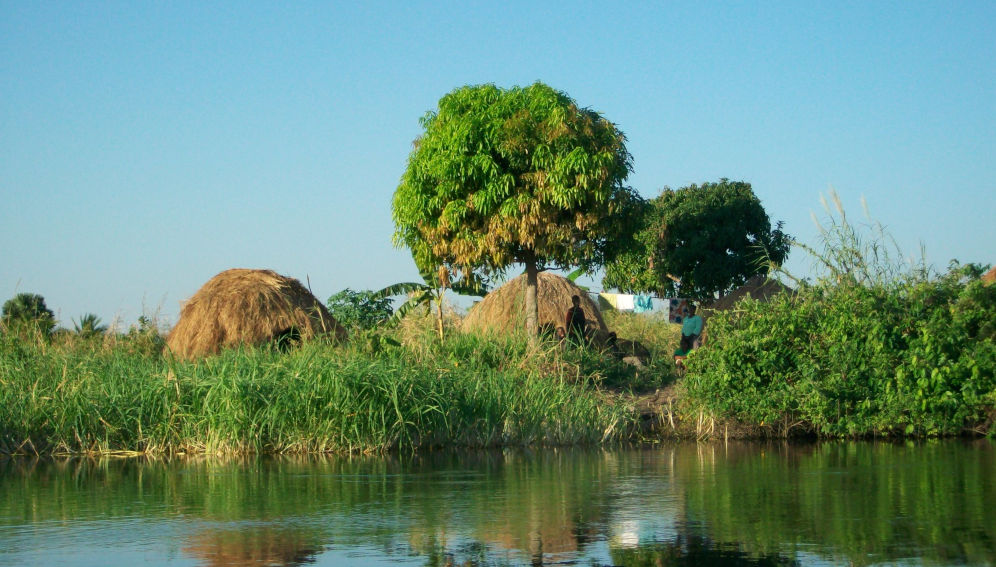SGCI News
This research project could provide clues as to the possibility of a transfer between the basins of two rivers, the Luapula and the Kafue. Fast playback Zambia’s water project is…
This research project could provide clues as to the possibility of a transfer between the basins of two rivers, the Luapula and the Kafue.
| Fast playback |
| Zambia’s water project is designed to combat the consequences of global warming and improve the sustainability of water resources. |
| It will study the positive aspects of a possible transfer between the basins of two rivers, the Luapula and the Kafue. |
| This project should ensure that future generations will be able to rely on the same water supply. |
By Scovian Lillian
A research project on the preservation of water resources in the Upper Zambezi and Luapula river basins in Zambia has been designed to improve water management, increase water levels that are currently too low, and reduce electricity shortages caused by the consequences of global warming, according to a hydrology researcher.
The country is experiencing a loss of water resources due to climate change and rising temperatures. As a result, access to drinking water and irrigation is under threat.
Nyambe Imasiku, professor of geology and coordinator of the Integrated Water Resources Management Unit at the University of Zambia, says that the project, which involves optimizing catchment preservation and watershed management for both rivers, will improve ecosystem quality through better water management practices.
“This water conservation research project is already contributing to the knowledge we have on water supply, wastewater treatment, hydropower generation, flood management and food security, particularly in the current context of climate change.”
Nyambe Imasiku, Professor of Geology and Coordinator of the Integrated Water Resources Management Unit at the University of Zambia
“The development-related challenges facing Zambia concern agriculture, industry, diversification of the mining industry, and then tourism, which will not be able to develop without water,” Nyambe Imasiku told SciDev.Net.
“Water is the main source of energy thanks to hydroelectricity, and therefore the driving force behind Zambia’s economy.”

He adds that the aim of this initiative is to gain a better understanding of the issues surrounding water quality and availability, and to use this knowledge to identify ways of eliminating mining industry tailings. The project will focus on the management of water, energy, food and the environment in general.
A detailed report will be submitted to the Zambian government on the possibility of a transfer between the basins of two rivers, the Luapula and the Kafue, which should put an end to the debate on this subject.
Transferring water between two basins is intended to improve water security in areas where there is a water shortage.
Nyambe Imasiku adds that the project will solve the problem of availability of water resources, so that future generations will be able to supply themselves with water.
The water conservation research project was initiated in October 2020 as part of the O.R. Tambo African Research Chairs Initiative (ORTACHI), which empowers young African experts in water resources, providing them with equipment and helping them acquire new technical skills. This initiative has enabled them to develop solutions, such as using bacteria to eliminate residues from the mining of copper deposits in the Copperbelt region of Zambia.
The ORTACHI initiative is implemented by the South African Research Foundation and the Initiative of Scientific Research Granting Agencies (IOSRS).
IOSRS, which was inaugurated in 2015, provides financial support to 16 scientific agencies in sub-Saharan Africa and empowers them to fund scientific research. It is a real driver of development, thanks to convincing arguments and incentive policies.
” This research project on the preservation of water resources is already contributing to our knowledge of water supply availability, wastewater treatment, hydropower generation, flood management and food security, particularly in the current context of climate change, “says Nyambe Imasiku.
He adds that the project contributes to achieving the Sustainable Development Goal on water availability and wastewater treatment, as well as the goals on food security, economic growth, affordable energy and biodiversity.
Related News
Voices of SGCI: Council leaders on the direction and ambition of SGCI 3
At the African Union’s Science, Technology and Innovation Week in Addis Ababa, earlier this month, leaders of science granting councils reflected on what SGCI Phase 3 represents for Africa’s science and innovation systems. From ownership and alignment to stewardship and sustainability, here are their voices…
Building Africa’s science future: inside the SGCI alliance
As Phase 3 of the Science Granting Councils Initiative launches on the margins of the African Union Summit in Addis Ababa last week, the SGCI Alliance Chair explains why this moment marks a decisive turning point for African science. Cephas Adjei Mensah describes what is…
Open call: Support for science granting councils in Sub-Saharan Africa
The International Development Research Centre (IDRC), through the Science Granting Councils Initiative (SGCI), has launched a call for proposals to support science granting councils in Sub-Saharan Africa in the establishment and operationalisation of the Capacity Strengthening Hub under Phase III of the SGCI-3. The Hub…
SGCI funded projects
Rwanda’s integrated approach to sustainable agriculture and nutrition
Project Titles & Institution Areas of Research Number of Projects being funded Project Duration Grant Amount In-Kind Distribution Council Collaboration with other councils





